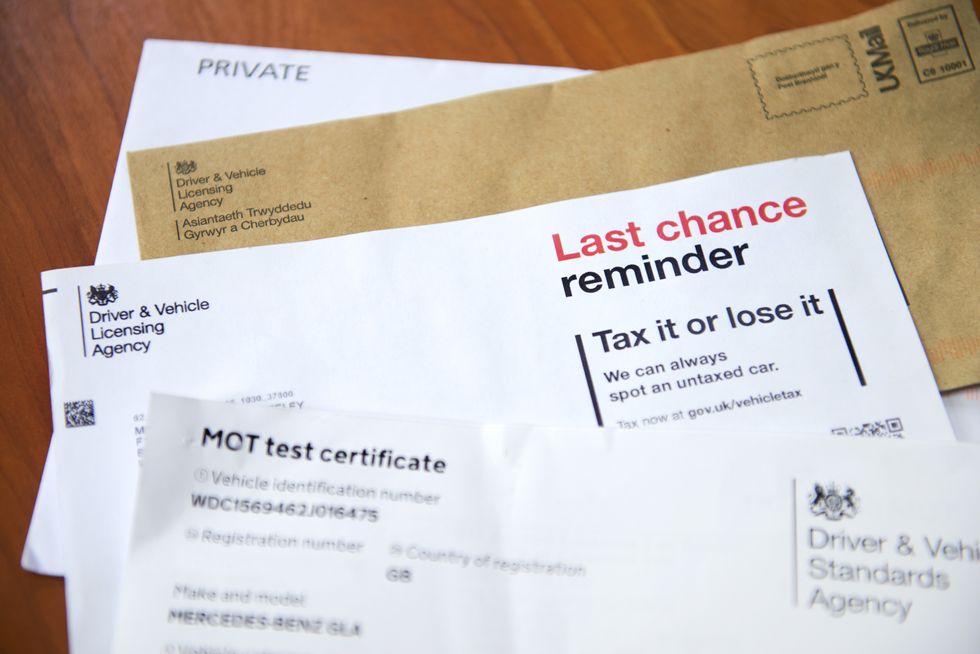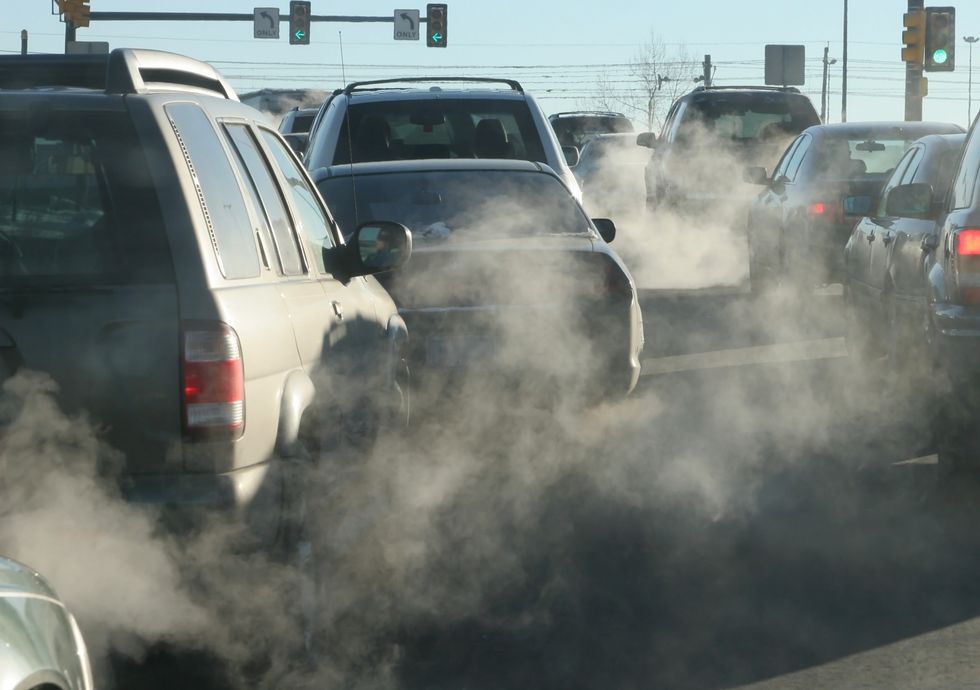Don't Miss
Most Read
Trending on GB News
New car tax changes will see some motorists pay £140 more this year, with millions of Britons seeing a rise in the amount they pay to keep their vehicles stay on the road.
In the Autumn Statement last year, it was announced that Vehicle Excise Duty (VED) would increase in line with the retail price index (RPI) in the 2024-25 tax year.
Drivers who first registered their vehicles on or after April 1, 2017, and emit less than 75g of CO2 per kilometre, will not see an increase in their car tax payments.
The first increase comes for vehicles which emit between 76 and 90g/km which will see prices rise from £130 to £135.
Do you have a story you'd like to share? Get in touch by emailingmotoring@gbnews.uk

Car tax changes have been introduced today
GETTYAll other tax brackets will see a £5, £10 or £15 increase until the 151 to 170g/km band, where a hike of £35 will be seen, bringing the total to £680.
Owners of the most polluting petrol and diesel vehicles will see the biggest impact from the new changes, adding a significant amount to their car tax bill.
Drivers will see a £55 price hike if their cars produce 171 to 190g/km, a £95 jump for the 191 to 225g/km and a huge £120 rise for those with vehicles emitting between 226 to 255g/km.
The biggest increase will apply to vehicles that produce emissions of more than 255g/km where prices will rise from £2,605 to £2,745.
This £140 price rise could have a dramatic increase on drivers who are already struggling with the cost of motoring, namely from car insurance increases and the fluctuating cost of fuel.
Vehicle tax rates for cars registered between March 1, 2001, and March 31, 2017, will also see increases unless their vehicles produce less than 120g/km.
Drivers with vehicles between car tax bands D and L can expect to pay between £10 and £35 more compared to last year.
The final tax band, M (over 255g/km), will see a £40 price hike, with almost all car tax payments becoming more expensive if they choose to pay using Direct Debit instalments.
Any other cars made before March 1, 2001, pay car tax based on the engine size, and will not see a huge increase in the amount they need to pay.
Any private cars of light goods vehicles with an engine smaller than 1,549cc will pay £210, up from £200, and if the vehicle has an engine size over 1,549cc, they will pay £20 more than last year, bringing their total to £345.
The expensive car supplement will also get more expensive. This is paid by drivers if they have a car or motorhome with a “list price” of more than £40,000.
Last year, the rate was £390 a year, although it has now increased to £410 a year. Drivers only have to pay this rate for five years from the second time the vehicle is taxed.
LATEST DEVELOPMENTS:
- New road cameras will crack down and fine tailgating drivers with UK-wide rollout 'only a matter of time' away
- Driving law changes launching in April will see Britons hit with huge car tax costs, DVLA updates and more
- Motorists warned of the most expensive UK airports for parking this year as Britons face extortionate charges

Drivers of the most polluting vehicles could see significant car tax increases
GETTYOwners of expensive electric cars will escape the expensive car supplement, in addition to paying VED for their vehicle until next year.
Thousands of drivers, however, will escape any price rises, as revealed by the Government during the Autumn Statement last year.
Vehicle Excise Duty for HGVs and the HGV levy will both remain at 2023-24 rates for 2024-25 in a bid to support the haulage sector.











